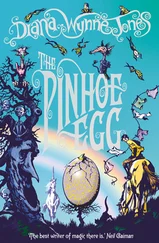‘You seem troubled by the question, Dottore. Why is that?’
‘Because I don’t like being in any way responsible for Davide’s death.’ He looked at Brunetti as he said this.
Brunetti shook his head. His failure to understand was not feigned. ‘That’s too hard a judgement, don’t you think, Dottore?’
‘It’s hard, but it’s not too hard,’ Proni said. ‘She had never needed them before: she’s always been a patient who takes very few medicines. I should have told her to try drinking something hot before she went to bed, or going for a walk in the evening.’ He scratched idly at a point just above the middle of his glasses and then rubbed the tips of his fingers up and down his forehead. ‘I should have thought.’
‘Thought what?’
‘That they come in bright colours and have a slick, sweet covering, like candies. They would be very appealing to someone of Davide’s mental age.’ He scratched again. ‘But I didn’t. I just wrote her the prescription.’
‘What was his mental age?’ Brunetti asked.
Proni shot him a glance, as though he’d invited him into his home and found him ruffling through the drawers. ‘I have no idea.’
‘I see,’ Brunetti said mildly. Then, ‘Did you ever treat him as a patient, Dottore?’
‘Do I have to answer this question?’
‘It would save a lot of time.’
‘What does that mean?’
‘That, eventually – but only by our going through channels and getting an order from a magistrate and spending days of work – yes, you can be required to answer that question.’
Proni pushed his chair back from the desk: its legs made an ugly, scraping sound on the tile floor. He rubbed at his forehead again. ‘I went to their home once when he had flu and another time when he had terrible diarrhoea. The first time all I could do was to tell her to keep him in bed and warm and see that he drank lots of liquids. The second time I wrote a prescription. I don’t remember what I prescribed: this was years ago.’
‘Was this done officially?’
‘What do you mean?’ Proni asked, obviously confused.
‘Was the prescription written for him?’
‘Of course it was written for him. He was the one who was sick.’
‘I’m sorry, Dottore. I wasn’t clear enough. Was the prescription written in his name?’
Proni stared at Brunetti as though he had suddenly noticed smoke coming from his ears. ‘I told you this was years ago, Commissario. I don’t remember what I prescribed and I don’t remember whom I prescribed it for. He had symptoms, I wrote a prescription, and that was that.’
There was nothing to lose in being truthful, Brunetti thought. ‘Dottore, I see your irritation, and I think I understand it.’ Embarrassed by having no tool left but honesty, he went on. ‘I saw him for years. He worked in the dry cleaner’s where my wife and I take our clothes. And I’d see him on the street sometimes. He always looked so . . . I don’t know the right word. Vulnerable, perhaps.’ He paused, but Proni said nothing. Some inner sense of propriety or decency kept Brunetti from inventing a lie similar to Pucetti’s and telling the doctor that his son had known and played soccer with Davide.
‘What was wrong with him, Dottore?’ Before Proni could answer, he said, ‘I don’t care if you saw him other times or treated him for other things. I just want to know that: what was wrong with him?’
Proni leaned forward and said, ‘He was born to a stupid woman. He was born to a woman who saw whatever was wrong with him as a curse from God, as though she were living in a hut in a forest and believed in witches. Like most Christians, she knew everything about guilt and nothing about charity, so she kept it hidden – remember, it was a curse – and made no attempt to get him trained or taught, and God knows how she raised him. That’s why he looked so vulnerable: that’s why he seemed so lost and alien.’
‘Did she tell you this, Dottore?’
Proni’s face flushed, because of either the story he was telling or the fact that Brunetti should question it. His mouth tightened and the difference between his eyes grew more marked. ‘She didn’t have to tell me, Commissario,’ he added in a calmer voice. ‘It was implicit in the way she treated him and in everything she said about him.’
Abruptly, Proni got to his feet. ‘That’s all I have to say, Commissario.’
Brunetti stood and leaned over the desk to offer his hand. Proni did not hesitate to take it.
‘Let him rest in peace,’ the doctor said. ‘He had so little of it when he was alive.’
Sensing that there was nothing to be gained by asking anything else, Brunetti turned towards the door. In the waiting room, he paused and nodded at the three drawings, which had changed again to suit the greater distance from which he was seeing them. ‘You said he’s a local artist,’ Brunetti said, pointing at the drawings. ‘Would I recognize his name?’
‘Probably,’ Proni said with a smile that shaved years off his face.
‘What is it?’ Brunetti asked, thinking he was being asked to do so.
‘Davide Cavanella,’ Proni said, moving past him. ‘That should explain my anger at his mother.’ He held the door open, and Brunetti left.
19
Because he was so close to home, Brunetti decided to go there instead of returning to the Questura. The kids would not be there for lunch; he had told Paola he would not be back, either, but his conversation with Dottor Proni had left him wanting to talk to her.
He found her where he thought he would: lying on the sofa, reading. She looked up when he came in, not at all surprised, and he was prompted to ask, ‘What if I had been the axe murderer?’
She picked up a piece of paper on her chest and stuck it back in the book, tossed the book to the foot of the sofa, and said, ‘The axe murderer had your footsteps on the stairs, and his keys jingled the same way yours do.’
‘You can hear that well?’ he asked, his surprise audible to both of them.
‘You mean at my advanced age or after having lived through years of the music choices of two teenaged children?’ she inquired.
He smiled and hung his jacket on the back of a chair, moved the book aside and sat down. ‘Did you really hear me coming up?’
‘Yes.’
‘And you can tell my keys?’
She hesitated, the way she always did when considering the usefulness of telling a lie. ‘No.’ He smiled; she shrugged. ‘But I did hear keys, and thieves – or axe murderers, for all I know – don’t make a noise when they’re trying to come in.’
She swung her feet around and put them on the floor. ‘Hungry?’
Brunetti couldn’t answer; he didn’t know. Davide Cavanella had come home with him, filling his thoughts, driving out all else. ‘I want to ask you something.’
‘What about?’
‘Noise,’ he said. ‘That is, sound.’
‘What about it?’
‘I wonder what it’s like to be deaf.’
She gave him a long look but said nothing.
‘How do they learn?’ he asked.
‘Learn what?’
He waved his hand in the air. ‘Everything. How to eat or sit in a chair.’
‘I suppose they learn it the same way Raffi and Chiara did.’
‘Which was?’ he asked, not because he didn’t remember but because he didn’t know if Paola would have the same memories.
‘By watching us do it, I’d say, though with eating we had to guide their hands with the spoon, and then the fork.’
‘And sitting?’ he asked, having given no conscious thought to the choice of actions.
‘They sat in highchairs to eat at first because we put them there, and then when they were big enough to climb on to chairs, they copied what they saw us doing.’ After a moment’s thought, she added, ‘And I suppose they figured out that sitting’s more comfortable than standing.’
Читать дальше












